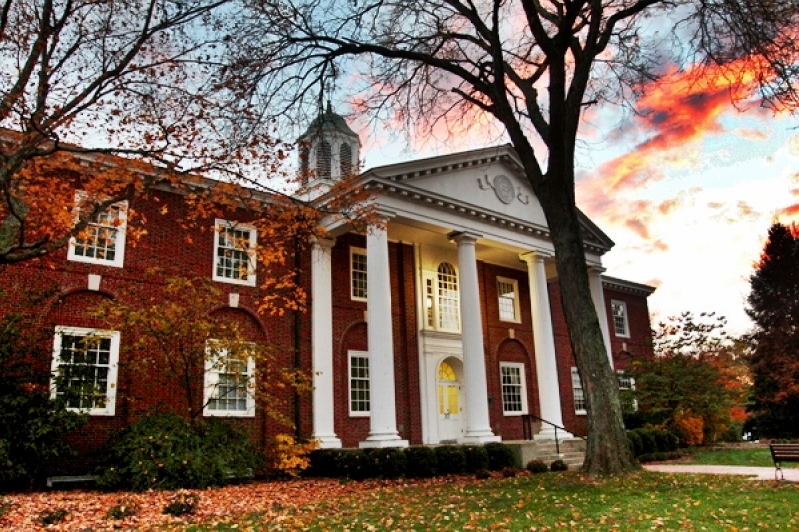
A student at the Presbyterian-affiliated Hanover College in Hanover, Ind., is accusing the school of retaliating against her for reporting another student for rape.
The student, identified only as Samantha, says she was sexually assaulted by her then-boyfriend in 2011 while staying at his fraternity house. Samantha reported the incident to campus security and a judicial hearing at the college found the ex-boyfriend not responsible.
Then, Samantha says, over a period of two years, the ex-boyfriend and his new girlfriend verbally and physically harassed her, while the school did nothing.
According to a complaint filed with the Department of Education's Office for Civil Rights, in March 2012, the ex-boyfriend came into Samantha's dorm room and physically assaulted her. When she offered to give photographs of her bruises to campus security the next day, they refused to take them and the instance was not investigated after the ex-boyfriend said he was not in the building during the time of the alleged attack.
In an email several months after the attack, David Yeager, the school's vice president and dean of student life, told Samantha, "Your on-going dispute with [the accused' is not a college matter and we have no interest in being made party to it."
Hanover College refused to comment on the specific case, but in a statement, a spokesperson said the school takes sexual misconduct seriously and would cooperate with the Department of Education's investigation.
According to a 2000 report from the U.S. Department of Justice, 3 percent of college women say have either been raped or have been the victim of attempted rape, and 13 percent of college women have been stalked. Of all the rapes taking place on college campuses, 60 percent took place in the victim's residence and in 90 percent of attacks, the victim knew the perpetrator.
During the Council on Women and Girls on Jan. 26, President Barack Obama signed a memorandum that will create a special task force to respond to campus rapes.
The White House Task Force to Protect Students from Sexual Assault, will encourage increased awareness, public awareness and interagency cooperation to both prevent attacks and to support victims.
The issue has come to the forefront after a recent rash of high-profile cases. Victims, who are now speaking out, say their schools often discourage them from taking action against their attackers. They also say the punishments given to the attackers are nominal.
Kate Dieringer, who was raped in 20001 while attending the Catholic Georgetown in Washington, D.C., told NBC's Dateline that she was disappointed when her attacker was only given a one-year suspension after appealing his expulsion.
"Expulsion would be too harsh. Like that I wasn't important enough to say, 'You don't belong here.'"
A 2014 report from the Council on Women and Girls details the pervasive reach of sexual violence.
"Rape and sexual assault survivors often suffer from a wide range of physical and mental health problems that can follow them for life - including depression, chronic pain, diabetes, anxiety, eating disorders and post-traumatic stress disorder," the report said.







